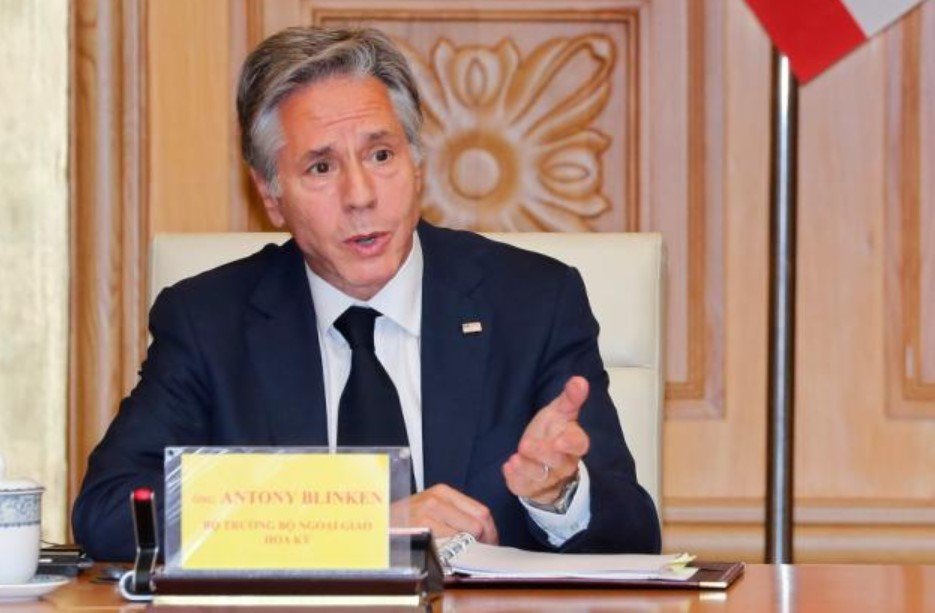Iran has announced that it will release five Americans who have been imprisoned in the country as part of a broader agreement with the United States that also involves the transfer of $6 billion of Iranian funds from South Korea to accounts in Qatar. The deal, which was confirmed by both sides on Monday, removes one of the major sources of tension between the two arch-rivals.
A long-awaited breakthrough
The five Americans, who have been held in Iran on various charges ranging from espionage to environmental activism, are expected to be freed on Monday and flown to Switzerland, where they will be met by US officials. They include Siamak Namazi, a businessman and former UN official; Emad Shargi, an Iranian-American entrepreneur; Morad Tahbaz, an Iranian-British-American conservationist; and two other Americans whose identities have not been publicly disclosed.

The US, in return, will release several Iranians who have been jailed or facing charges in the US for violating sanctions or other crimes. The US will also allow Iran to access $6 billion of its funds that have been frozen in South Korea due to US sanctions. The money will be transferred to restricted accounts in Qatar, where it can be used for humanitarian purposes such as food and medicine.
The prisoner exchange deal is the result of more than two years of secret negotiations between the US and Iran, which were facilitated by Oman, Switzerland, and other countries. The talks intensified in recent months as both sides sought to break the deadlock over the 2015 nuclear deal, which the US withdrew from in 2018 and Iran has since violated by enriching uranium beyond the agreed limits.
A step towards diplomacy
The deal is seen as a positive sign for the prospects of reviving the nuclear deal, which aims to prevent Iran from developing nuclear weapons in exchange for lifting sanctions. The US and Iran have been holding indirect talks in Vienna since April, but have not reached a breakthrough on how to restore compliance with the agreement.
The deal also reflects a shift in tone from the previous US administration, which pursued a policy of “maximum pressure” against Iran and imposed harsh sanctions that crippled its economy. President Joe Biden has expressed his willingness to rejoin the nuclear deal if Iran returns to full compliance, and has also signaled his interest in addressing other issues of concern with Iran, such as its regional activities and missile program.
Iran, meanwhile, has also shown some signs of flexibility, despite facing domestic pressure from hardliners who oppose any engagement with the US. Iran’s new president, Ebrahim Raisi, who took office in August, has endorsed the prisoner exchange deal and said he supports the nuclear talks as long as they serve Iran’s national interests.
A cautious optimism
The prisoner exchange deal has been welcomed by human rights groups and families of the detainees, who have endured years of uncertainty and hardship. The deal has also been praised by some lawmakers and analysts as a humanitarian gesture that could pave the way for more dialogue and cooperation between the US and Iran.
However, the deal also faces some challenges and criticism from those who oppose any concessions to Iran or question its sincerity. Some US Republican senators have accused Biden of appeasing Iran and rewarding its “hostage-taking” behavior. Some Iranian hardliners have also denounced the deal as a sign of weakness and capitulation to US pressure.
Moreover, the deal does not address the fate of other Americans who are still missing or detained in Iran, such as former FBI agent Robert Levinson, who disappeared in 2007; former Marine Amir Hekmati, who was released in 2016 but is still seeking compensation; and Navy veteran Michael White, who was freed in 2020 but is still barred from leaving Iran.
The deal also does not guarantee that the nuclear talks will resume or succeed anytime soon. Both sides still face significant gaps and obstacles in reaching an agreement that would satisfy their domestic and international constituencies. The deal also does not address the broader issues of mistrust and hostility that have plagued the US-Iran relations for decades.
Therefore, while the prisoner exchange deal is a welcome development that could ease some of the tensions between the US and Iran, it is not a panacea that will resolve all their differences or disputes. It is rather a step towards diplomacy that requires more patience, pragmatism, and goodwill from both sides.
